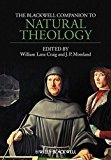The Argument from Cognitive Biases
A family of theistic arguments contends that the human ability to reason is to be expected under theism, but is surprising under metaphysical naturalism, and thus provides evidence favoring theism over naturalism. One common line of argument is that unguided evolution favors traits that aid in survival and reproduction, rather than traits conducive to discovering the truth. Thus, evolutionary naturalism provides us with no reason to expect our cognitive faculties to be reliable, whereas theism does provide us with reason to believe that God would have created human beings with cognitive faculties aimed at discovering the truth. Several naturalists have responded with arguments that there is in fact significant survival and reproductive value in having accurate cognitive faculties, but in this paper Aron Lucas takes a different tact. Namely, Lucas argues that even if the general fact that human beings can reason favors theism over naturalism, nevertheless the more specific fact that human reasoning suffers from a variety of cognitive biases favors naturalism over theism. If this is right, then arguments from reason can only be deemed successful by understating the full extent of our knowledge concerning human reasoning, thereby committing what Paul Draper has called the fallacy of understated evidence. After fully outlining the available data concerning human reasoning, Lucas concludes that the existence of human cognitive biases does not merely neutralize the evidential significance of the human ability to reason, but in fact overpowers it, tipping the scales in favor of naturalism (all else held equal).




